The first of the Gurus and the founder of the Sikh religion was Guru Nanak. He was born at Talwandi (now known as Nankana Sahib in Pakistan) on a full moon day on October 20, 1469
Millions of his followers all over the world celebrate this day as Guru Purab – Guru Nanak Jayanti.

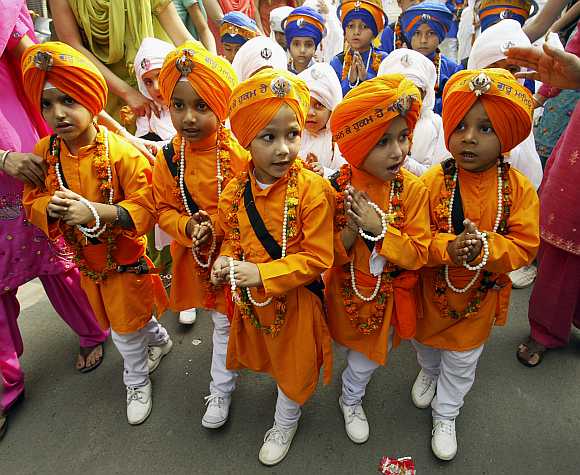
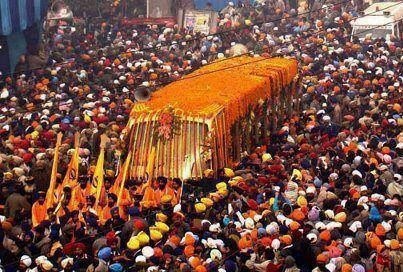
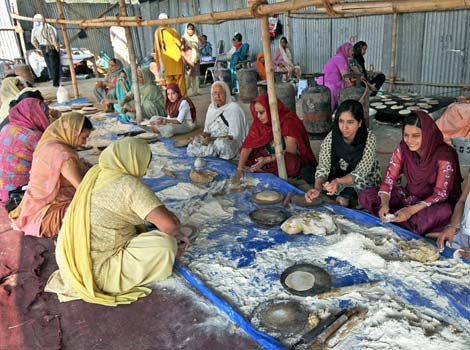

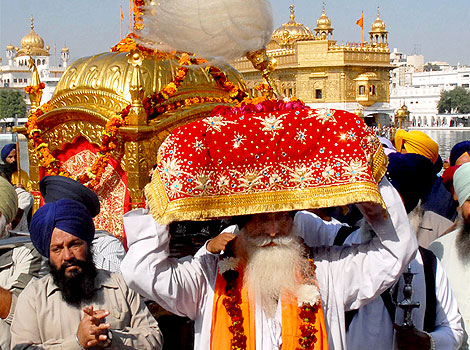
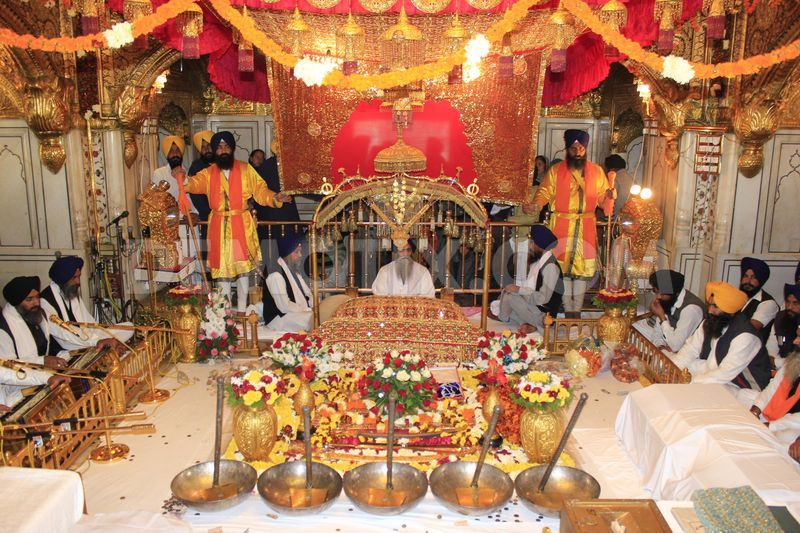

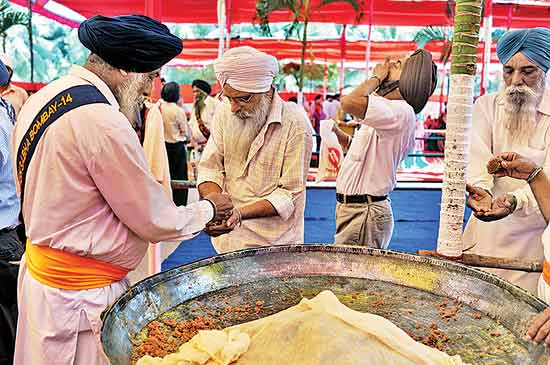



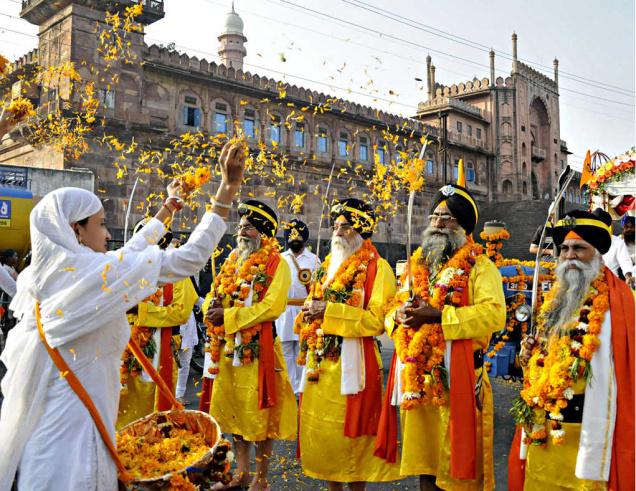


Heartiest greetings to all the followers of Guru Nanak Devji
Happy Guru Purab!
Month: November 2014
Enemies of Happiness
In my last posting I had mention that as a 1st step we must identify enemies of our Happiness. These are broadly speaking of two types.
- Enemies of happiness residing within ourselves.
- Enemies outside. These could be people; this could be a tasks which you don’t like or environment.
In today’s posting I like to tell you about enemies of Happiness which are within are our own selves. I have listed eight. There could be more. Based on these 8 you can prepare your own list. Because Happiness is of prime importance to all of us, we must apply our mind deeply to correct the situation. Following is the list of enemies of Happiness residing in our own Body and Soul.
- Anger 5. Attachment
- Fear 6. Hesitation
- Jealousy 7. Procrastination
- Indecision 8. Greed
Today I will talk about 1st four i.e. Anger, Fear, Jealousy and Indecision.




My personal experience and those of my students who have shared with me reaffirm that these four enemies are big Happiness Spoilers in our lives. In order to have appropriate benefit of our discussion, I suggest that you may mentally go through the pages of the book of your life. Then identify which were the moments when these four villains have spoiled your happy moments.
I received a mail from one of my readers to shorten my blog. I ‘ll talk to you further on this tomorrow.
Thanks for reading.
Lessons of Life from Shakespeare.

Any great literary writer is invariably a great teacher. Writer will not sermonize. Life of the current time (normally) is beautifully portrayed. Yet, one could draw great inferences and learn very useful lessons that help humans to live life better. I don’t claim to have read much of Shakespeare, but I am one of his great admirers.
Works of Shakespeare transcend the limits of time and space. He is as relevant today as he was in his time. He is as relevant in India as in England. I have picked up 4 of his tragedies. According to me these are eye openers for common people like us. The four plays I have chosen to talk about are: Hamlet, Othello, Macbeth and King Lear.
When we read these plays thoughtfully and contemplate, we are able to identify short comings of similar nature in our personalities. We may be quite surprised. How and why these did not receive our attention. We would like to remove these faults even though they may be in very small measure. The classified blemishes I am talking about are:
1. Suspicion, Jealousy (Othello)

2. Greed that led to extinction (Macbeth)

3. Credulity Prone to flattery (Lear)

4. Indecision that reaches tragic proportions (Hamlet)

As I said above reading these plays, we observe that all these weaknesses were foolishly repetitive in the tragic characters. We might find that similarly we too harbor some habits that make us do something which we don’t want, repetitively. It is here that we learn a lesson. One can purge one’s personality if so desire. Undoubtedly, the exercise will require a mentor or a guide.
Thanks for reading.
Public Announcements.
Subway in New York.
“Good Morning….. Good morning to all of you. Have a wonderful day…” This was the cheerful announcement I heard in a subway train in New York travelling from Queens to Times Square. The enthusiastic greetings were interspersed with interesting happy anecdotes. The compartment which I was travelling was disfigured with some writings which made no sense to me. But the announcements were so pleasing to hear that I was filled with energy to encounter great things in Manhattan (New York).
Linatte Airport, Milan
Then again I remembered when I got down first time at Linatte Airport in Milan, Italy. The announcements were music to my ears. That was my first visit to Italy and I didn’t know one word of Italian language. But the tone, the clarity and the cordiality with which announcements were being made filled me with joy. I thought it was a wonderful country.
I know that comparisons are odious and should be avoided. But if these leave us with lessons to learn, I consider comparisons serve a good cause and should not be despised. So I draw a comparison with my most recent experience.
Last week I went for to Delhi for a day. As per my habit I reached the airport well in advance and was waiting for the flight announcement after my security check. There was no announcement but there was a call on my mobile. Suddenly the caller almost shouted “Where are you Mr. Kakri. You are the last passenger to board the flight.” Hurriedly I went to the gate and boarded the bus trying to avoid the sarcastic looks prowling my entire body.

SpiceJet- Delhi Airport
I did my work and next day & returned by SpiceJet flight. The departure time of the flight was 4 pm. As usual I was early. I seated myself after searching a lone empty chair and started browsing the book my nephew had given me. At the counter I was informed the boarding will start at 3:30 pm. Around that time there was some feeble announcement about Spice Jet Flight. As I could not decode the words spoken an in an inarticulate fashion, I looked for the announcement board. The flight was delayed by half an hour. So I thought the boarding will take place at 4 pm instead of 3:30 pm. After some time a worried looking elderly person told me that the flight was further delayed. However there was no announcement. We were all waiting on the 1st floor while the boarding takes place on the ground floor. So slowly I went down and reached gate no 12 where I was supposed to board the flight. There was a huge queue and I also took my place in the queue. But it did not move for more than half an hour. Some of the passengers lost their temper. There were hot arguments with the airline staff. It was an uncivil ugly sight. This could have been easily avoided with proper articulate and cordial announcements.
Our political leaders often go to foreign countries for study tours. I hope one day they will come back realizing the importance of polite and clear announcements to guide our concerned people.
Thanks for reading.
Wani Yoga & Throat Chakra
Study and practice of Yoga is incomplete without understanding the importance of the 7 Chakras. These chakras are the real energy centers. Wani Yoga particularly impressive the practices involved in balancing Throat Chakra and the Third Eye Chakra. Today I will talk about the importance of Throat Chakra in Wani Yoga.
It may be necessary to give a brief introduction of these 7 Chakras in order to appreciate their importance in the life. The 7 Chakras are described as under.
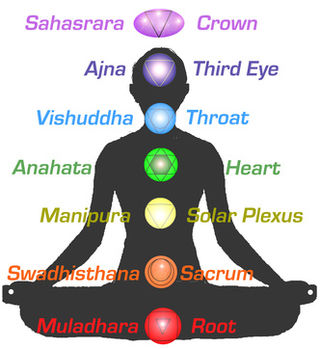
- Root Chakra is concerned about the safety of the human being.
- Sacral Chakra refers to the relationships and creativity of the person concerned.
- Navel Solar Plexus Chakra describes the personality and will power of the person concerned.
- Heart Chakra Heart Chakra indicates the love and compassion that the person practices in his/her life.
- Throat Chakra is responsible for expression and communication of the individual.
- Third Eye Chakra shows the development of the individual to have good gut feeling or intuition
- Crown Chakra is the ultimate destination of the individual. This chakra concerned his/her spiritual development.
Talking about the Throat Chakra if there is any imbalance the person will be effective with lack of expression. He/she will suffer from the inability to express himself/herself. A feeling of stagnation will be the next problem suffered by the individual. The person might become habituated to holding on to unexpressed angle in tern the attitude will turn negative.

The imbalance of Throat Chakra will also bring a feeling of despondency in the individual – helplessness to make them heard. Further the person made be afraid of speaking. Speaking to a group of person effectively is not at all possible for a person who’s Throat Chakra is not balanced. Besides, the person will suffer from failure to find the right words while speaking.

Wani Yoga ensures that regular simple speech exercises along with breathing techniques are helpful in bringing back the balance of the Throat Chakra. The exercise prescribed in this module are simple to understand and easy to practice. Speech is an extremely important aspect of the human personality. It is therefore necessary that whenever any individual suffers from the blemishes described above, the effects of same may be mitigated by practicing Wani Yoga.

In my next posting I’ll talk about the problems suffered due to imbalance of the Third Eye Chakra. I’ll also describe how the Wani Yoga can help in bringing back the balance.
Thanks for reading.
Tragic hero on screen and in real life.
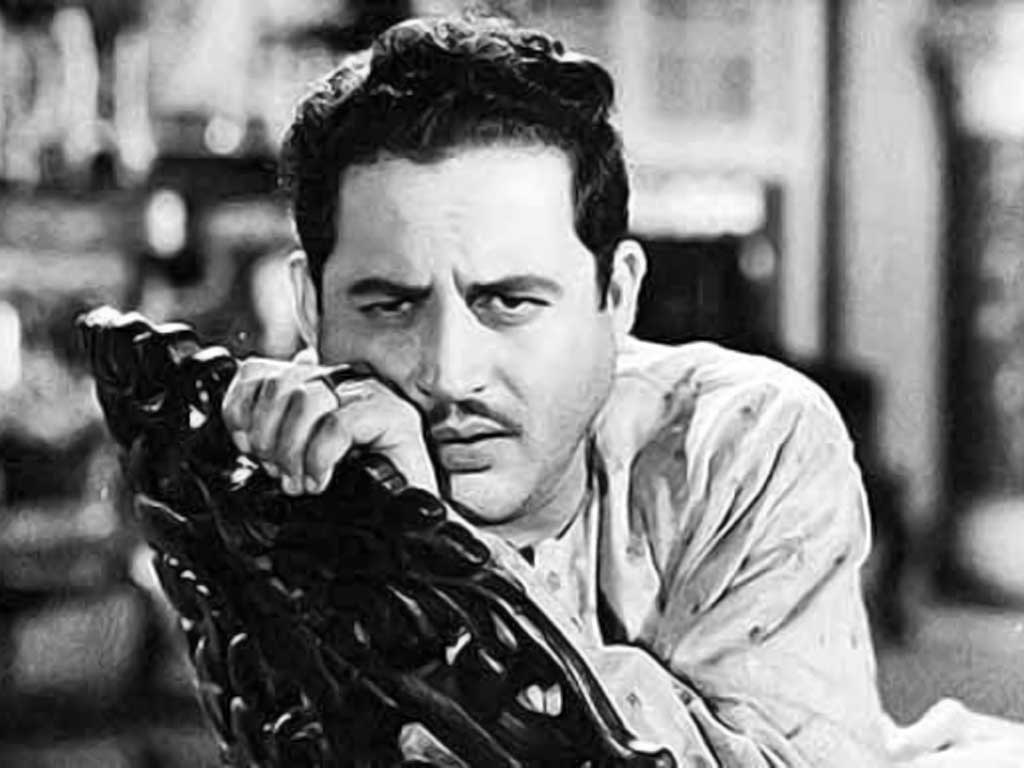
Guru Dutt left this world on 10th October 1964. He was only 39 years old at that time. An extremely creative director and an equally talented actor Guru Dutt died young. He loved and married a great Bengali singer Geeta Roy. As a singer she is popular as Geeta Dutt. For a few years both lived a happy life. But the family’s happiness did not last long.
Guru Dutt had introduced Waheeda Rehman, again a very talented actress, to the Hindi Cinema. Working together in films, Guru Dutt got emotionally attached with her. At the same time Geeta Dutt was intensely in love with her husband and did not accept the situation. Besides, Guru Dutt was more of an idealist who would not accept the society as it was. This is fairly evident from his films: Pyaasa and Kagaz Ke Phool.
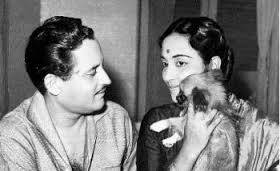
Guru Datt and Geeta Dutt in happy days that did not last.
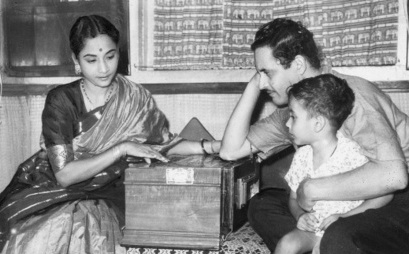
Needless to say that anyone who doesn’t accept the society as it exists faces big problems which often lead to tragedies. The same happened in case of the great artist Guru Dutt.
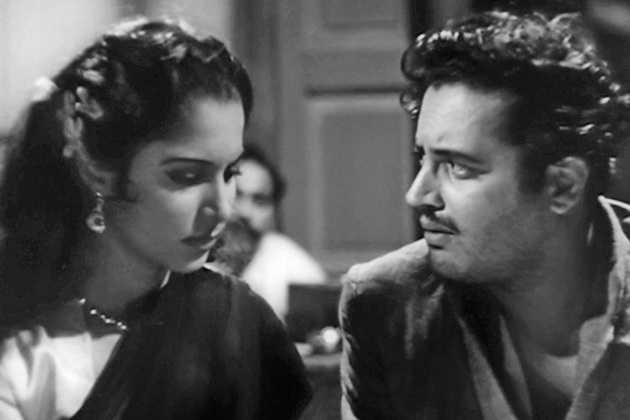
Guru Dutt and Waheeda Rehman in Pyaasa.
I am reminded of the tragic heroes of William Shakespeare. Each hero suffers from a tragic flaw in the personality. In case of King Lear, we find that the King was extremely credulous and prone to flattery. Dividing his kingdom he gave nothing to the youngest of the three daughters who loved him most but never practiced flattery. The two daughters who got the entire kingdom, threw their father out. Only then the king realized that Cordellia only loved him and not the other two. Likewise Othello is driven by his dominant personality flaw – suspicion and meets the tragic end. Hamlet suffers because of indecision and Macbeth is overpowered by his lust for wealth and drives himself to his tragic end.

 King Lear Othello
King Lear Othello
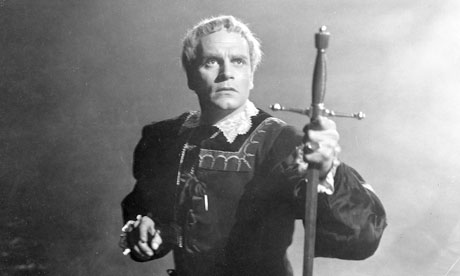
Hamlet
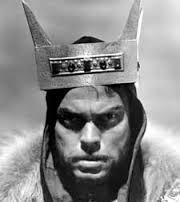
Macbeth
Guru dutt was an idealist who didn’t find the society worth accepting and he suffered. But his creativity gave Hindi Cinema many gifts. Johny Walker the best known comedian of Indian cinema was discovered and mentored by Guru Dutt. Our film industry has yet to see a comic character who could match the acting excellence that Johny Walker had achieved. Those who had seen Pyaasa will never forget Johny Walker’s small role and the song ‘Tel malish… sar jo tere chakraye ya dil duba jaye aaja pyare pass humare kahe ghabaraye….’
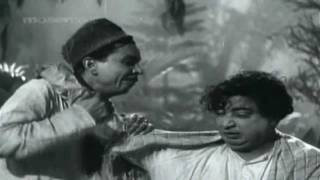
Other memorable films of Guru Dutt were Saheb Biwi Ghulam and Choudhavi ka Chand. Guru Dutt is often referred as “India’s Orson Welles”. His films were liked in Europe particularly Germany and France. He was also popular in Japan.
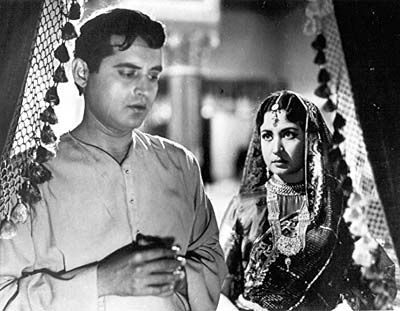
On 10 October 1964, Guru Dutt was found dead in his bed in his rented apartment at Pedder Road in Mumbai. He is said to have been mixing alcohol and sleeping pills. His death might have been suicide, or just an accidental overdose. It would have been his third suicide attempt.
Thanks for reading.
Responsibilities of the Manager
A manager must consider himself/herself as a facilitator for the people he/she manages. Manager must ensure that all the needs of people managed are properly met. Peter Drucker says “the manager must do things right, the leader must do right things.” While there is no doubt that a good leader may also be a good manager but it is important to know the difference between a manager and a leader. Today I’ll discuss the qualities and short comings of the two i.e. the manager and the leader. We must understand and appreciate their respective roles.
- The manager provides to the team members all that may be needed for the performance of their respective roles. For any shortfalls in this context the manager must consider he/she responsible. Such shortfalls are bound to affect performance.

- Developing a mechanism to monitor that there is very little tolerance in the efficacy of the duties performed by the team members, is manager’s duty. That means the work must go ahead with as much accuracy as is possible.

- Productivity depends upon aligning various efforts of the team members. It also depends upon ensuring that the differences emerging out off the various cultural backgrounds do not interfere with the productivity. It requires thorough understanding on the part of the manager habits of the different members of the team, of their characteristic traits due to the cultural backgrounds and also the working style.

- All the members of the team need to be trained properly for the seamless progress of efforts for achieving team’s goals. Often times the members of the team may not indicate any development need due to whatever reason. Therefore it is the duty of the manager to identify these development needs and arrange for the appropriate training.

- The next job that the manager has on hand is to create right environment conducive for better performance. It will depend upon the goals and various situational factors. Due to the constant changes in the market the manger needs to be alert and responsive to these changes.

- Some of the members of the team may even require coaching for coming up to a certain satisfactory level. Here again it is the duty of the manger to identify the persons and their needs and organized coaching to meet the situational challenges.

Since the business environment is very competitive, it is but necessary that the manager needs to leave up to the challenges and face these squarely. This will be good for the manger, for the team as well as for the organization.
Thanks for reading.
Durga Ashtami

Durga Ashtami is performed on the 8th Navratra during Durga Puja festival. Nine nights of Devi Puja known as Navratre comprise a colorful celebration marked with devotion to express respects to Goddess Durga. It is believed that Maa Durga is omnipresent. Its Shakti (Power) is manifest to bless all devotees. Several temples throughout the country are dedicated to Durga Mata. The celebration continues for these 9 days in temples as well as Hindu homes. Many Hindus observe fast as a symbol of their devotion to the all powerful Goddess Durga. Our beloved Prime Minister Modi also observes fast on these Navratras. It was heartwarming to know that even on the night of the special dinner organized by none other than US president Barak Obama, our Prime Minister Modi joined the celebrations but took only plain water.





Durga Saptshati explains in details the importance of observing and celebrating the festival. More than that the Holy book explains how Durga Mata is incarnation of power. She appears herself and helps the devotees whenever they are in peril. The Goddess fights the evil forces represented by Rakshas in the time when they vitiate peace and over power Devtas.

Durga Saptshati explains in details the importance of observing and celebrating the festival. More than that the Holy book explains how Durga Mata is incarnation of power. She appears herself and helps the devotees whenever they are in peril. The Goddess fights the evil forces represented by Rakshas in the time when they vitiate peace and over power Devtas.

Different parts of the country the traditions or the method of Puja may differ but objective is the same- expression of devotion to Durga Mata.

Thanks for reading
Styles of Leadership
There are broadly speaking six different styles of leadership. No one scores over the other. Some leaders have their fixed style. May be they choose and adopt. There are others who are adaptable and change their style as per the need of the moment and the situation. Those who can change and adapt are most suited to this very competitive society.

- First of all I’ll talk about the Pace Setting Leader. He models himself by pursuing excellence in the tasks he/she is handling. And then he fixes up the pace. We may call him to follow the “Do as I do, now” type. It may appear that such a leader has no place in today’s environment. But they too have a great significance in a situation where the team is skilled and motivated. And the leader is looking for quick results. However, followed continuously, it is bound to overwhelm members and annihilate innovation.

- Next we have the Authoritarian Leader. In some way he is like the Pace setting Leader. But there is a big difference. He explains the goals and does not define how the same should be pursued. Such a Leader fits best when the team needs a new vision. However, not suitable if the leader is working with a team of experts who know more than him/her.

- The Affiliated Leader – creates an emotional bond. He is one who feels people must come first. This is most suited in times of stress. When the team needs to overcome any kind of trauma, when due to whatever reason trust is shaken and a feeling of insecurity is rampant.

- The coaching Leader: When a leader wants team mates to learn certain skills which are development needs of the team. This kind of leadership is not suitable if team members are argumentative or defiant. Also unsuitable when the leader lacks the absolute confidence befitting of a coach.

- The coercive Leader: Do what I tell you – style of leadership only meant for times of crisis when the organization is not in a good shape. It is to be used when overcoming the ill-effects of an emergency like fire or any other disaster of a kind.

- Democratic Leader: He is one who always builds a consensus. A democratic leader knows how to carry people along. Certainly he must have adequate assertiveness so that he does not get taken for granted.

Thanks for reading.
Leadership Qualities
In my last presentation, I had defined Leadership. I had also explained what it takes to be a good leader. How must a leader go about performing his/her duty that would justify leadership. Today, I shall talk to you about the characteristic elements of personality which are necessary for a good leader:
- The first on the list is Honesty. Honesty towards oneself. This means that the Leader must be himself or herself all the time. At no time the Leader should try to copy anyone or say something which he/she does not believe. The leader must believe in an honest, ethical behavior as a key value. All the actions will foster among the team members the same value. Once accepted the value can be a strong bond among members of the team, a group, or an organization.

- The second quality which a leader must have is the ability to delegate. This requires the leader’s trust in the members of the team. Besides, the leader should have the ability to identify the strengths and weaknesses of the members. This will help in assigning appropriate tasks to individual members. Such a delegation will be meaningful and the results will be more productive.

- Excellent communication represents the third important quality of a good leader. The leader should be in a position to communicate in a language which is understood by all – be it an uneducated skilled worker on the floor or the CEO who is a member of the board.Further the leader must ensure that whatever has been communicated is not only understood, but assimilated by all concerned. This will be possible only if the leader has an open mind and encourages rather than discourages feedback.

- Excellent communication represents the third important quality of a good leader. The leader should be in a position to communicate in a language which is understood by all – be it an uneducated skilled worker on the floor or the CEO who is a member of the board.Further the leader must ensure that whatever has been communicated is not only understood, but assimilated by all concerned. This will be possible only if the leader has an open mind and encourages rather than discourages feedback.

- Excellent communication represents the third important quality of a good leader. The leader should be in a position to communicate in a language which is understood by all – be it an uneducated skilled worker on the floor or the CEO who is a member of the board.Further the leader must ensure that whatever has been communicated is not only understood, but assimilated by all concerned. This will be possible only if the leader has an open mind and encourages rather than discourages feedback.

- A strong sense of commitment is the next aspect of positive leadership. Committed leaders often have a hands on approach and are able to do it themselves especially in times of a crisis. This approach ensures the commitment of the team, which feels secure under such decisive leadership.
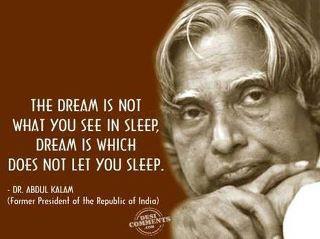
- A positive attitude is also a very important aspect of leadership. Positive Attitude of the Leader ensures high energy levels of the team members. It also ensures that the Leader looks at every challenge as an opportunity rather than a roadblock.

- A positive attitude is also a very important aspect of leadership. Positive Attitude of the Leader ensures high energy levels of the team members. It also ensures that the Leader looks at every challenge as an opportunity rather than a roadblock.

- The leader’s quality of Institution refers to his gut feeling about the course of action he is to take. The quality of Intuition enables a leader to take calculated risks in decision making when facing an unforeseen situation.

- The leader’s quality of Institution refers to his gut feeling about the course of action he is to take. The quality of Intuition enables a leader to take calculated risks in decision making when facing an unforeseen situation.
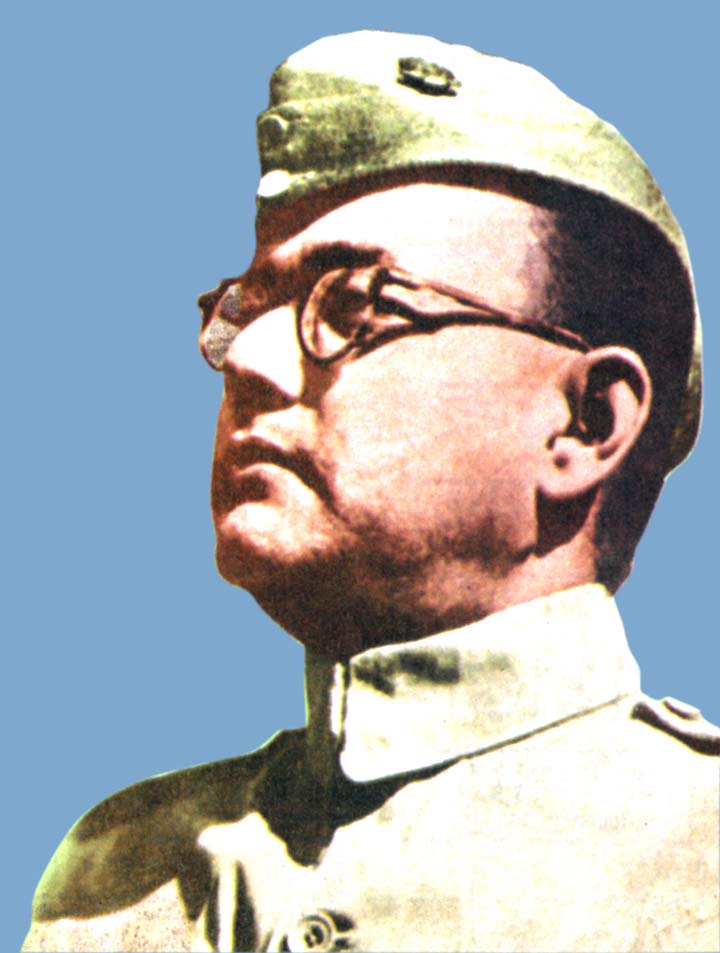
Thanks for reading.

